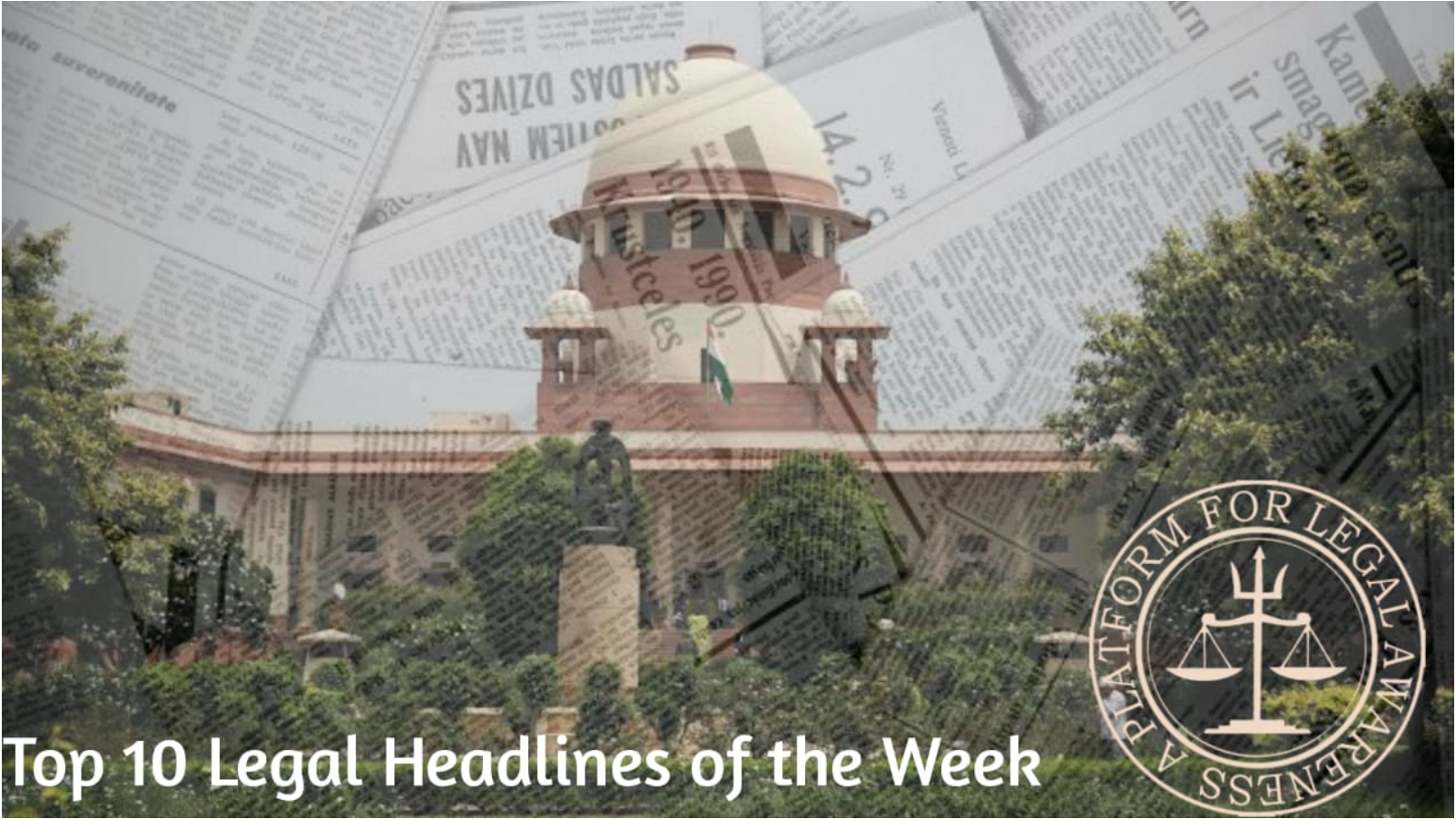1. Supreme Court to Examine Necessity of Victim's Hearing in Anticipatory Bail
The Supreme Court on Monday agreed to consider whether victims in rape cases must be heard before anticipatory bail is granted to the accused. The case arose from a Kerala High Court decision, where a rape accused challenged the cancellation of his bail, arguing that the victim was not given a chance to present her views before the relief was granted. This case will address the procedural fairness involved in anticipatory bail applications.
2. Supreme Court Mandates ICCs in All Government Departments and PSUs
The Supreme Court directed all government departments and public sector undertakings (PSUs) to set up Internal Complaints Committees (ICCs) to enforce the Sexual Harassment of Women at Workplace (POSH) Act, 2013. The Court emphasised that the POSH Act's objective to protect and respect women at the workplace cannot succeed without strict adherence to its enforcement regime. Detailed directions were issued to ensure proactive compliance across all institutions.
3. Supreme Court Criticizes Madhya Pradesh HC for Terminating Women Judges
The Supreme Court strongly rebuked the Madhya Pradesh High Court for terminating the services of six women civil judges in June 2023. The Court highlighted the lack of empathy and gender sensitivity in the decision, refusing to reinstate some of them. The justices pointed out that understanding women's issues, such as menstruation, is crucial in fostering gender equity within judicial and administrative processes.
4. Supreme Court Transfers Probe Against BJP's Kabir Shankar Bose to CBI
The Supreme Court has transferred the investigation into the assault cases against BJP leader Kabir Shankar Bose to the Central Bureau of Investigation (CBI). Bose had moved the Court, alleging that TMC leader Kalyan Banerji fabricated the charges against him as part of a personal and political vendetta. The Court's decision follows concerns over the fairness of the ongoing probe, with Bose claiming that the local authorities were biased. The transfer to the CBI aims to ensure an impartial investigation into the matter.
5. Supreme Court Stresses Caution in Granting Bail in Serious Offences After Trial Begins
The Supreme Court has emphasised that courts should exercise extreme caution when considering bail applications in cases involving serious offences like murder, rape, and dacoity once the trial has begun and the prosecution has started examining witnesses. The Court added that bail in such cases could only be granted if the trial is unduly delayed through no fault of the accused. This observation underscores the importance of maintaining the trial process's integrity while balancing the accused's rights.
6. Supreme Court Grants Bail to 8 Convicts in the 1987 Hashimpura Massacre Case
The Supreme Court on Friday granted bail to eight convicts involved in the 1987 Hashimpura massacre case, in which 42 Muslim men were killed in Uttar Pradesh. The convicts had argued that their appeal against the conviction had been pending before the Court for the last six years and, despite being listed multiple times, had not been heard. The Supreme Court's decision comes amid the prolonged delay in the hearing of the case, raising concerns over the timely resolution of appeals.
7. Supreme Court Rules Sanction to Prosecute Public Servant Cannot Be Granted Without New Material
The Supreme Court has ruled that once sanction to prosecute a public servant under Section 197 of the Criminal Procedure Code (CrPC) is denied, it cannot be granted again based on the same material that was initially considered. The Court emphasised that the refusal of sanction must be based on the evidence available at the time. Without new incriminating material, the decision to deny sanction cannot be overturned. This judgment ensures consistency and fairness in the process of granting prosecution sanctions against public servants.
8. SG Tushar Mehta Expresses Concern Over Senior Designation System in Supreme Court
Solicitor General (SG) Tushar Mehta told the Supreme Court that the system of conferring Senior designation on advocates has become a subject of ridicule, jokes, and memes on the internet. He further stated that the process should not evolve into a mere "distribution" system. Mehta's comments highlight growing concerns about the credibility and respect for the Senior designation process, which is crucial in recognising experienced and distinguished legal professionals in India.
9. Supreme Court Initiates Suo Motu Case to Examine Impact of Stay Orders on Criminal Trials
The Supreme Court has initiated a suo motu case to investigate the adverse effects of stay orders granted by courts on the progress of criminal trials. The matter will be heard on December 9 by a Bench comprising Chief Justice of India (CJI) Sanjiv Khanna and Justice PV Sanjay Kumar. This move aims to address concerns over delays in criminal justice due to the frequent issuance of stay orders.
10. Supreme Court Directs Uttar Pradesh to Amend Laws to Curb Family Appointments in Cooperative Societies
The Supreme Court has directed the Uttar Pradesh government to propose amendments to laws governing cooperative societies to prevent appointing family members or spouses of bureaucrats to ex officio positions. The Court emphasised the need for democratic values in governing bodies, urging that most members should be duly elected. The state has been granted six weeks to prepare a draft proposal for changes to the State Cooperative Societies Act and related statutes. The proposal is due by February 10, 2025; non-compliance could lead to legal consequences.

